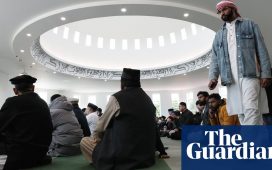A Turkish court ruling has paved the way for Istanbul’s crowning architectural jewel, the Hagia Sophia museum, to be turned back into a mosque – a politically charged decision that has drawn international criticism but delighted the president Recep Tayyip Erdoğan’s conservative base.
Turkey’s highest administrative court, the Council of State, ruled unanimously on Friday to annul a 1934 presidential decree that stripped the Hagia Sophia of its religious status and turned it into a museum. The government can now take steps to convert the 1,500-year-old building back into a Muslim house of worship.
The Unesco-listed Hagia Sophia (Divine Wisdom), or Ayasofya in Turkish, was completed in 537AD by the Byzantine emperor Justinian, and for centuries served as one of the world’s most important centres of Christianity.
The cathedral was converted into an imperial mosque 550 years ago after the Ottoman conquest of Constantinople, and then became a museum on the orders of Mustafa Kemal Atatürk, the founder of the Turkish Republic.
The status of the world heritage site has been hotly debated for decades by Christians, Muslims and those who believe in preserving the Turkish state’s secular principles.
Friday’s ruling settled a case brought by a religious group that has campaigned for years for the Hagia Sophia to be reconverted into a mosque. It questioned the legality of Atatürk’s decision, telling the court that the building was the personal property of Ottoman Sultan Mehmed II, who conquered Istanbul in 1453.
Erdoğan, who has championed Islamic values during his 17 years in power, publicly took up the cause last year in an effort to shore up waning support for his ruling Justice and Development party (AKP).
Recent polling by a pro-government newspaper found that 73% of Turks were in favour of converting the museum back into a house of worship, although another survey conducted by Metropoll found that 44% of respondents believed the building’s fate had been put on the agenda to divert voters’ attention away from Turkey’s economic woes.
In the run-up to the court’s decision, Ankara’s international allies and foes alike criticised the impending move. The decision has further soured tensions with neighbouring Greece, which claims the building as an important part of its own history.
Ecumenical Patriarch Bartholomew, the spiritual head of 300 million Orthodox Christians, said altering the status of the building would fracture the eastern and western worlds. Russia’s Orthodox church said on Thursday that turning it into a mosque was “unacceptable”.
Last week the US secretary of state, Mike Pompeo, said any change would diminish the Hagia Sophia’s ability “to serve humanity as a much-needed bridge between those of differing faith, traditions and cultures.”
Unesco, too, has said any changes to the building’s status must be reviewed by its world heritage committee.
The first prayers in the building are expected to be held on 15 July, the fourth anniversary of a failed coup against Erdoğan’s government.






